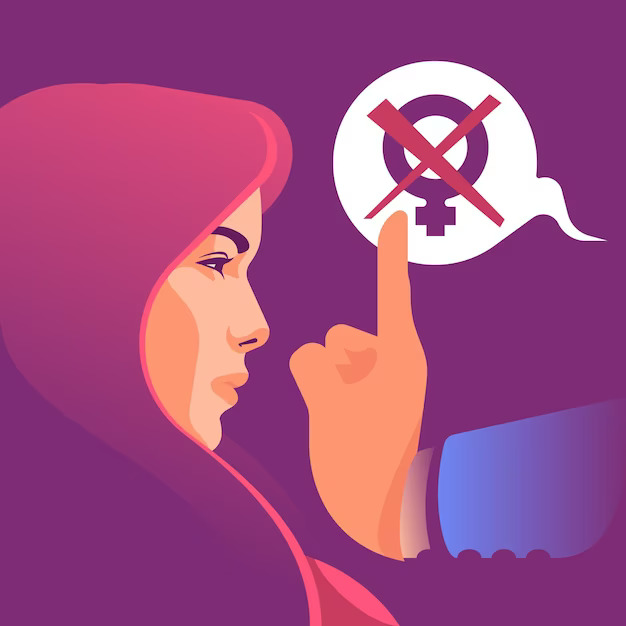A key concern is sexual violence. People of all genders and ages are affected, and it occurs in every society. One in 71 males and almost one in five women report having been raped. Any sexual action where consent is not freely provided is considered sexual violence. We are all influenced by sexual assault because of the way it affects communities and society, especially survivors and their loved ones, even if we don’t personally experience it. The unpleasant reality is that 250,000 or more people in the US experience sexual assault every year, a topic that many find difficult to discuss or even think about.
What is sexual assault?
When someone engages in any of a number of sexual offences, such as showing someone indecent photos, kissing, touching, or penetrating their body with an item or body part, it is referred to as sexual assault in law.
- If somebody carries out a sexual act that makes you uneasy; or
- It could be sexual assault if someone touches you when you don’t want them to.
Various touching or behaviour patterns could constitute sexual assault depending on:
- Where it occurs and how;
- What motivates the culprit to act in that manner;
- The victim’s age, what the victim believes, and what a reasonable person would do
There are numerous alternative terms for sexual assault, including:
Child sexual abuse, child sexual assault, rape, lewd behaviour, lewd assault, sexual molestation, incest, touching, “feeling up,” and sexual harassment are all examples of sexual misconduct.
All of these offences fall under the legal definition of “sexual assault.
Signs of distress
By recognising the warning signs of sexual assault, anyone—a parent, teacher, administrator, co-worker, or friend—can make a difference in someone’s life. Sexual assault can happen anywhere, but it’s most common on college campuses and other places where students congregate. It’s difficult for victims to come forward given that in seven out of ten sexual assault situations, the attacker is someone the victim knows. It might be difficult for someone to talk about their experience, especially if the offender is a friend, classmate, family member, or close friend.
Sexual assault victims may display a variety of indications of distress, including:
- Depression
- Alterations in sleeping habits
- Shifts in dietary patterns
- A low sense of self
- Increased use of alcohol or drugs
- Sexually transmissible diseases
- Avoiding certain locations or circumstances
- Declining grades or skipping classes
- Self-destructive habits or suicidal thoughts
- Elevated anxiety
Raising sexual assault awareness
-
Educating yourself about sexual assault
Any unwanted sexual contact that a person is pressured or forced to have against their will is considered a sexual assault. A 2014 poll conducted by the Centres for Disease Control and Prevention (CDC) found that almost one in five women have either been the victim of rape or attempted rape at some point in their lives. For men, research likewise paints a dismal picture. According to studies, one in six males will also have an unwelcome or abusive sexual experience at some point in their lives.
Both men and women are affected by sexual assault, and the trauma that results frequently lasts much longer than the actual incident. Sexual assault victims are more likely to struggle at school or at work, experience posttraumatic stress disorder, depression, anxiety, suicidal thoughts, alcohol and drug addictions, intimate relationship issues, and posttraumatic stress disorder.
-
Volunteer
There are numerous methods for you to personally participate in the campaign to increase knowledge of and eradicate sexual assault in your neighbourhood. You can support survivors by volunteering at crisis centres, running a helpline, attending fundraising events, spreading awareness about safety issues on college campuses, or you can be inventive and hold your own educational or advocacy event.
-
Learn how to assist those who have experienced assaulted
Knowing how to approach a loved one who has been the victim of sexual assault can be challenging. If you’re unsure about what to do, the following advice may be of assistance:
Be a caring, understanding ear. Most people merely want to be understood. They don’t necessarily require comments or guidance.
Be considerate and patient. If your friend or loved one is not yet prepared, don’t try to pressure them into getting help or taking action.
Offer to be available if the person needs assistance or medical attention. Even though it may seem straightforward, just being there can have a big impact.
-
Community engagement
To aid in preventative efforts, think about contacting your neighbourhood. You may seek help from faith-based or youth organisations, speak with bar owners about the prevention role their staff can play, or push college instructors and employees to enhance security on campuses.
If you are looking for ” online counselling in India“ contact TalktoAngel, a platform that connects the best online therapists with psychologist near me.

